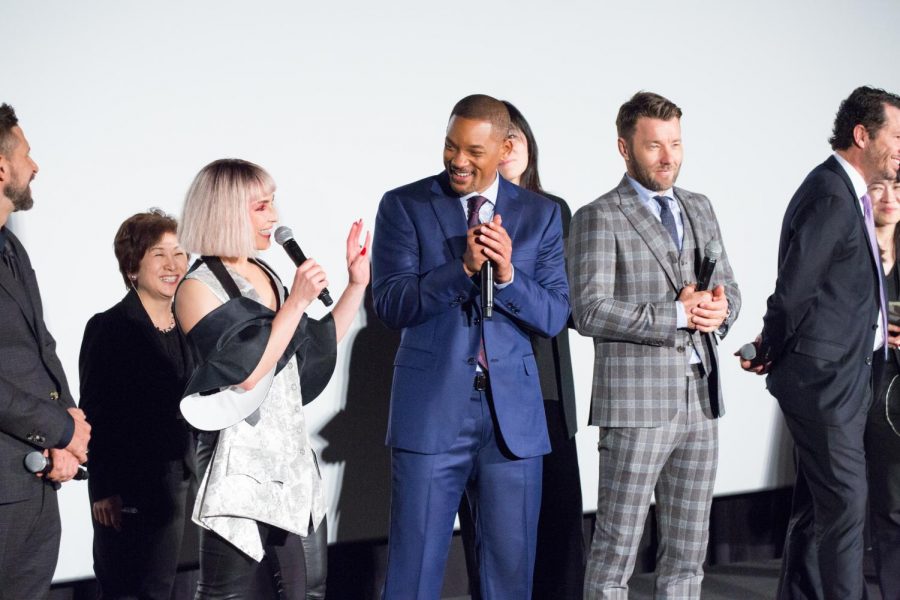In Bright, Worlds Collide, and Not Always for the Better
Photo Courtesy of: Dick Thomas Johnson
Bright, one of the latest Netflix projects, stars Will Smith and Joel Edgerton.
February 26, 2018
Falcon Rating: 2.5/4
Bright, one of the latest Netflix movie projects, is directed by David Ayers and written by Max Landis. It is essentially a buddy cop film with a backdrop of fantasy parody, tied together with (not very subtle) social commentary.
Set in an alternate Los Angeles—complete with elves, fairies, orcs, dwarves, dragons, and magic, Bright focuses on Los Angeles Police Department (LAPD) officer Daryl Ward (Will Smith) and his partner, an “orc” named Nick Jakoby (Joel Edgerton). Ward is approaching retirement, having recently been wounded by a gunshot—partially due to Jakoby’s negligence.
Soon enough, the pair find themselves in the midst of conflict between powerful elves over a magic wand. To use the wand without exploding, one must be born with a rare supernatural power—the possessors of those powers are known as “brights.”
While investigating a crime scene, Jakoby and Ward meet Tikka, the elf who currently holds the wand. After evading other police officers who covet the magic, Jakoby, Ward ,and Tikka are forced to confront the sinister underbelly of the city, filled with gang wars, police corruption, and, strangely, the prophecy of the defeat of an unnamed dark lord.
So, what works in this movie?
Bright seems to have been made to be watched by a group of people, as everyone can find something to be interested in. But, instead of being a positive attribute, this characteristic is the problem.
Between fantasy, commentary, and police thriller, Bright is stretched between three worlds—but introduces nothing new or unique to any of them.
While Bright is an acceptable comedy, it really only made me laugh once with a throwaway line about taking two years of “elvish” in high school.
The division between species in this fantastic world is starkly analogous to the racial and ethnic discrimination of our very own country—from police brutality to how non-orcs treat orcs like Jakoby.
Initially, this is what fascinated me the most. However, the comparison leaves a lot to be desired. The creators never fully explain why orcs are looked down upon or the history of how humans, elves and orcs came to live together in L.A.
One of the major themes in Bright is the division of loyalties: Jakoby is torn between his identity as an orc and the law, Ward between loyalty to his partner and his family, and Tikka between good and evil. These divisions are all resolved by an act of sacrifice by each of the characters, with varying degrees of effectiveness.
I would recommend checking out this movie. If you like it, you’ll know in the first five minutes. Watching Ward and Jakoby interact in a world similar to the current world might pique your interest; the idea of an inter-species buddy cop might be enough. For me, waiting to see social commentary is what led me to sit through the whole thing.
In the end, I was disappointed. Bright built up the commentary well enough, but the analogies were far from perfect, and they ultimately did not deliver in the message of acceptance and unity. But, maybe that’s the point. Maybe the continuation of prejudices is truer to real life.
This movie would probably be more fun with friends, so if you’re trying to unwind with friends, take a look at Bright. Everyone can find something to be interested in.
This piece also appears in our February print edition.










